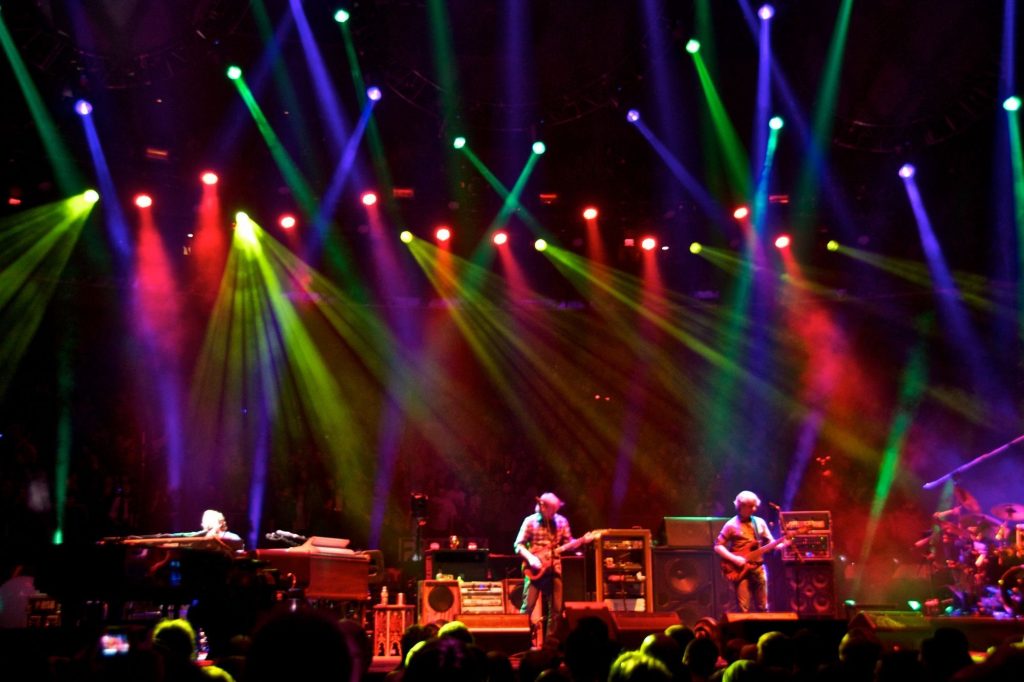
The next time you go to a rock concert, or to the London Philharmonic, spare a thought for the people who make it happen. The statistics are scary. On Bruce Springsteen’s recent Wrecking Ball tour, which consisted of 51 shows, there was a team of more than 100 people just managing the logistics. 22 mega truck-trailers transported band gear, sound, lights, video, wardrobe, dressing room needs, and a travelling stage, from city to city and across the world.
Strategy and discipline in execution
The logistics involved in managing a show on tour and moving equipment and people from one venue to another demands a well-orchestrated plan and strict timing. When Paul MaCartney goes on stage, it looks simple, just him and his guitar and a small band. However, he has a support staff of more than a 130 skilled professionals, including specialist vegetarian caterers. Trucking 10 tonnes of avocados across a few countries in Europe or importing containers of LED lights from China is a breeze by comparison.
There’s no live entertainment without someone to deliver the stage sets, musical instruments, costumes and those massive video screens. Whether the requirement is a “one off” show or an 18-month World Tour, the comprehensive planning process is the same. When a show is on the road for months, there’s no room for delays or damage or scheduling errors. And everything must happen in the right order. Each move must be tailored to the clients’ specific needs and country-specific laws and customs regulations, all of which can be very demanding.
On the road and in the air
The biggest logistics challenge is getting equipment across international borders. Anything from incorrect paperwork to an officious customs agent can delay band gear in transit. Ed Butler, VP of Rock-It Cargo, says logistics specialists in this field not only provide import, export, and customs clearance services but also arrange carnets (documents that allow the movement of equipment across international boundaries without paying customs duties).
For transporting bulky stage sets and other equipment internationally, Boeing 747 cargo planes are preferred. Beyoncé’s Formation tour of Europe required 7 of them to transport her entire show across the Atlantic. The newer narrow-body planes are often not suitable due to weight restrictions and smaller aircraft doors.
Moving an entourage from country to country in Europe by road is often solved by using a fleet of sleeper coaches which permit some vital downtime for both the musicians and the support staff, during which time the gear travels separately.
Packaging and safety
Custom-made wheeled steel cases and “work boxes” are used to move musical instruments, maintenance tools and electronics. These extremely heavy boxes, which must stay upright, are rolled onto pallets and packed tightly for transit.
Trucks often have padded walls and special nooks with straps and load bars to protect the gear. One thing that makes moving stage sets and band equipment an exceptional challenge is that every component is essential to the show. If one piece goes missing or is damaged, the end result is compromised.
The production of Phantom of the Opera has been touring for about three years with a fleet of 20 trucks. The famous chandelier slides into a special rolling cart with padded sides to protect the crystals and has never been damaged on the road.
Entertainment logistics is also about the people
In the supply chain world, logistics and transportation usually mean shipping goods. In this world, it also means moving people as well. A 100+-person support team for a major star or band is not unusual. The core production and logistics staff include riggers, technicians, carpenters, electricians and drivers. Then there is the wardrobe, security and catering and other support staff such as business managers and accountants. All these people have to be moved around and everyone needs to be fed and accommodated.
Specialist travel agencies are often used because they understand the nuances and foibles of such travelling circuses Lisa Morris, of New York–based Road Concierge, knows that with rock tours, travel negotiations go way beyond booking tickets and rooms. “It’s a caste system filled with upgrades and egos, contractual liability and every possibility for a mix-up.”
Movers, but not shakers
Specialist entertainment logistics firms have emerged to manage these large scale multi-venue events. Companies such as Sound Moves, Rock-it Cargo and X-Freighted provide the full range of services including sourcing, warehousing, inventory management and transportation. Not only do they manage most regular supply chain functions like military operations but they also handle budgets, do unscheduled maintenance, insure the inventory, manage risk and compliance, and act as nannies and chaperones. “Entertainment logistics is very organised and very controlled,” says Jason Juenker, of NETworks Presentations, one of the largest producers of theatrical touring shows in the United States.
One of the most important functions is to ensure the timely arrival of the equipment: the staging, lighting, sound and video, musical instruments and props. When U2 did their epic world tour a few years ago, the 360° stage structure was so complex and time-consuming to erect and dismantle that there were three identical stage “kits”. While the band was performing on one stage, another one was delivered to the next city on the tour while the third one was picked up from the previous venue.
What can go wrong?
Madonna will tell you. On her tour of South America, one of her cargo planes was delayed in Mexico City causing a show in Buenos Aires to be postponed. It was not only inconvenient but very expensive. Instead of trucking her gear to her next gig in Santiago, Chile it had to be airfreighted at a cost of $1.5m.
When the band members stride out on stage or the orchestra tunes up, spare a thought for the invisible people. At the end of a show, everything moves in reverse order and it’s on to the next venue.














